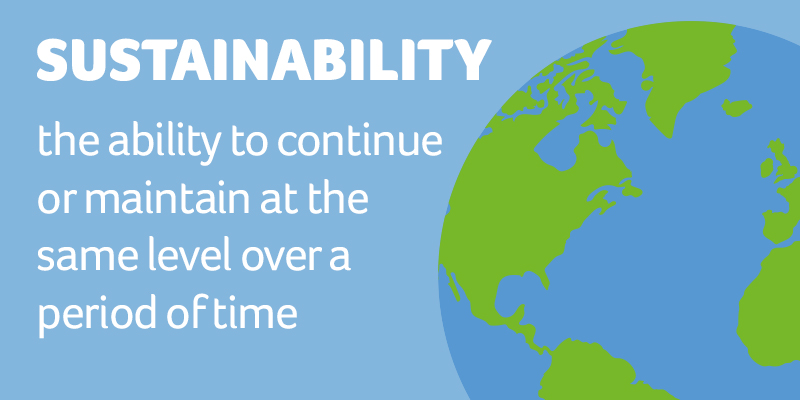What does “sustainability” really mean?
Busting the babble
Imagine you had a magical refilling chocolate cupboard, so every time you took some chocolatey goodness to snack on during your favourite tv show, more just appears in the cupboard. You’d never run out – no faffing, no emergency chocolate runs to the shop! Sounds pretty great, right?
This magical cupboard is sustainable – you can keep taking from it for a long time without it running out. It doesn’t matter how much you take, because more chocolate will just appear. It’s magic! But as we all know, in reality magical cupboards just don’t exist (boo). Taking chocolate from your regular cupboard stash without replacing it is not a sustainable practice – eventually you’ll just run out of chocolate.
In terms of the environment, the (non) magical cupboard is Earth. In order to be sustainable, we must ensure that the ways in which we as a society draw upon these resources is sustainable – to keep a balance between what’s good for society and what’s good for the planet.
The dictionary definition
Sustainability is defined as “the quality of being able to continue over a period of time” by the Cambridge Dictionary.

This applies to sustainability in general – for example, something can be sustainable for you financially, emotionally or physically. Say you wanted to buy an expensive car because you had a small lottery win, but the monthly payments were high – depending on your income, you may be able to afford the car now, but would it be sustainable for you to carry on affording it? But if it was a big lottery win – well, that’s a whole different story.
In the context of the environment, the Cambridge Dictionary says “the idea that goods and services should be produced in ways that do not use resources that cannot be replaced and that do not damage the environment“.
This is why when someone says a plastic bag, or a plastic bowl, or even plastic utensils made from virgin plastic material are not sustainable, they’re right – they aren’t sustainable. Sure it may last a very long time, and they’re durable, but its the production method and the fact that the resources used are non-renewable, or take millions of years to form makes them unsustainable.
This is why it’s vital we swap to resources that are renewable, or that promote a circular way of living. Shopping sustainably, reducing our waste and consumption, refusing single-use waste products, reusing and repurposing what we can, repairing items when they need it and recycling everything else.
Browse our range of sustainable living products to get started.